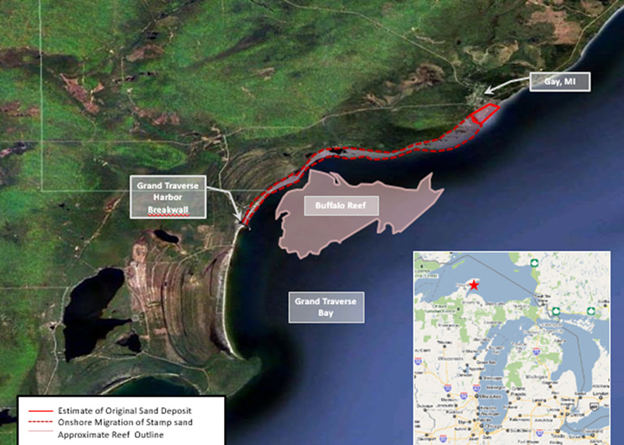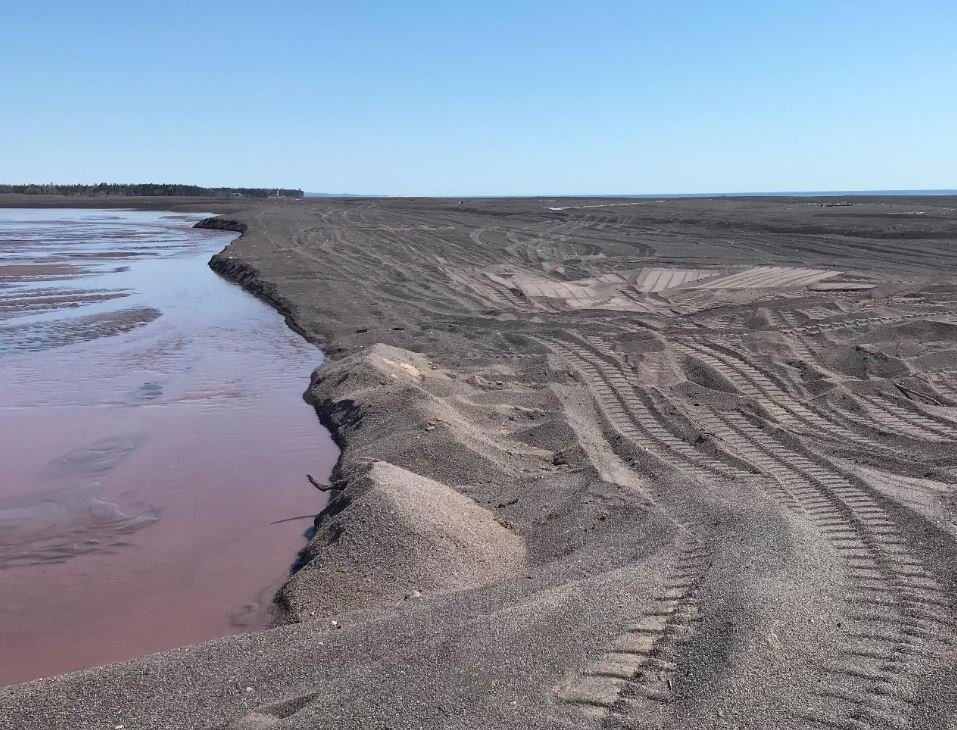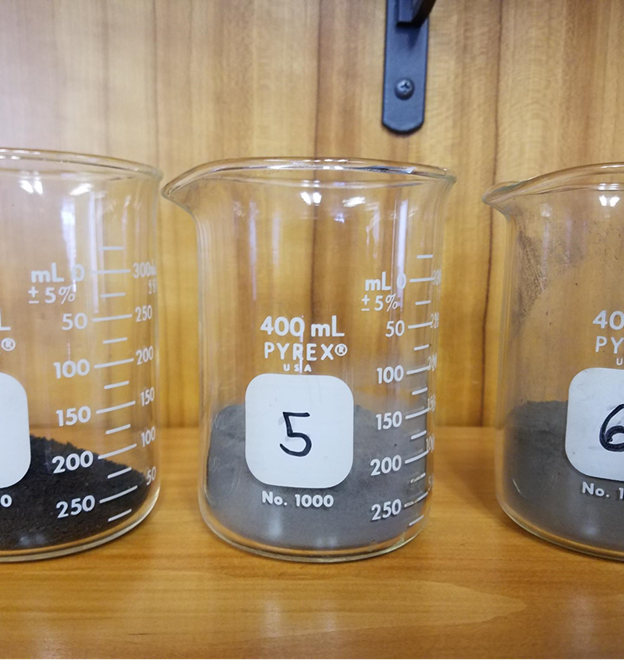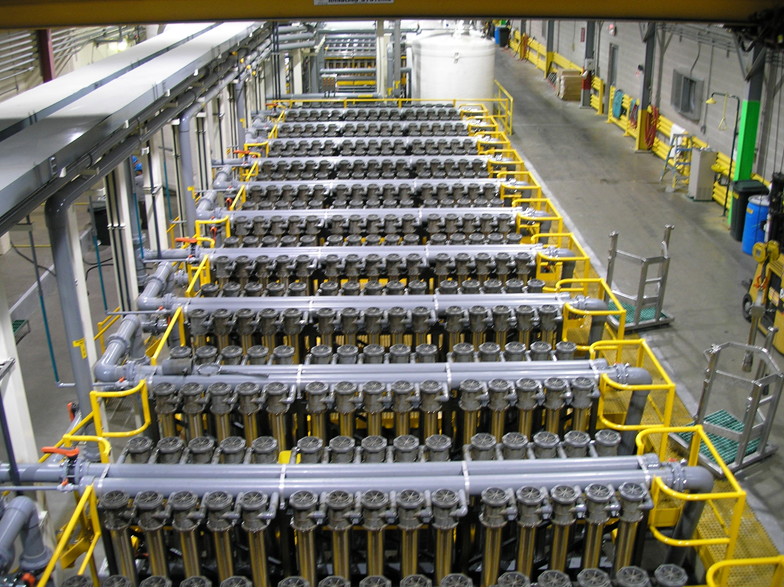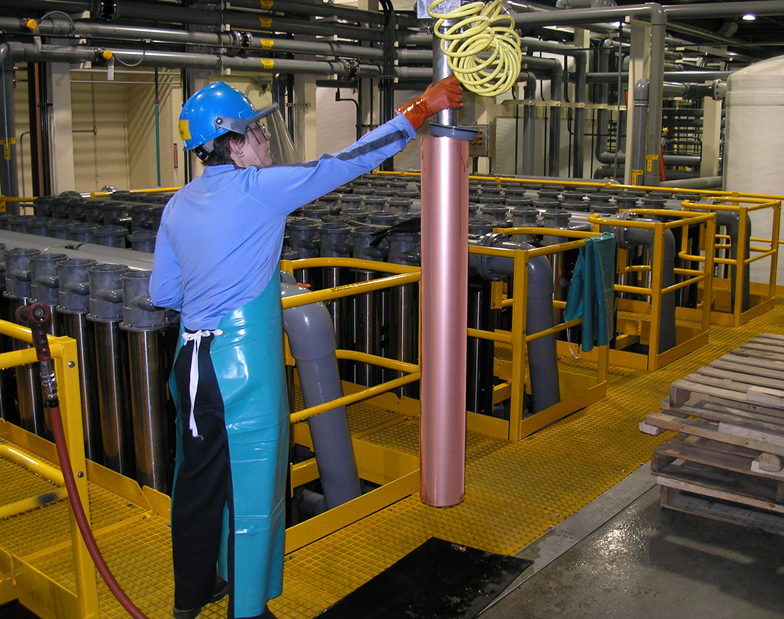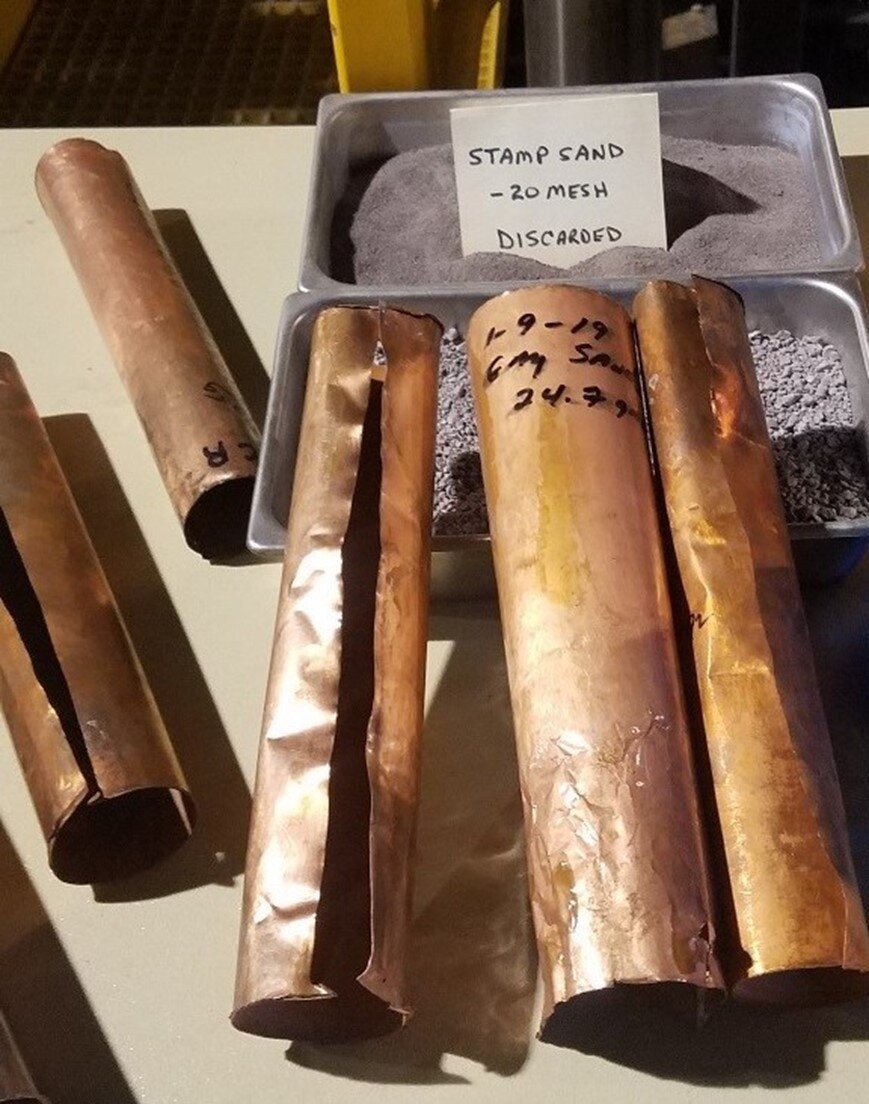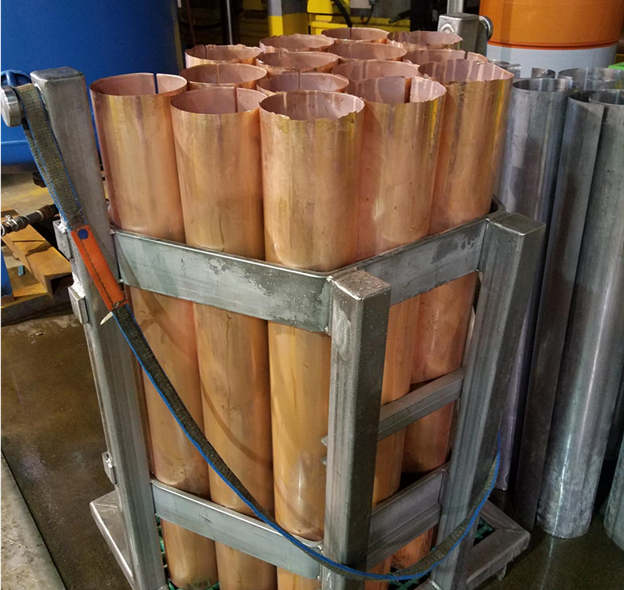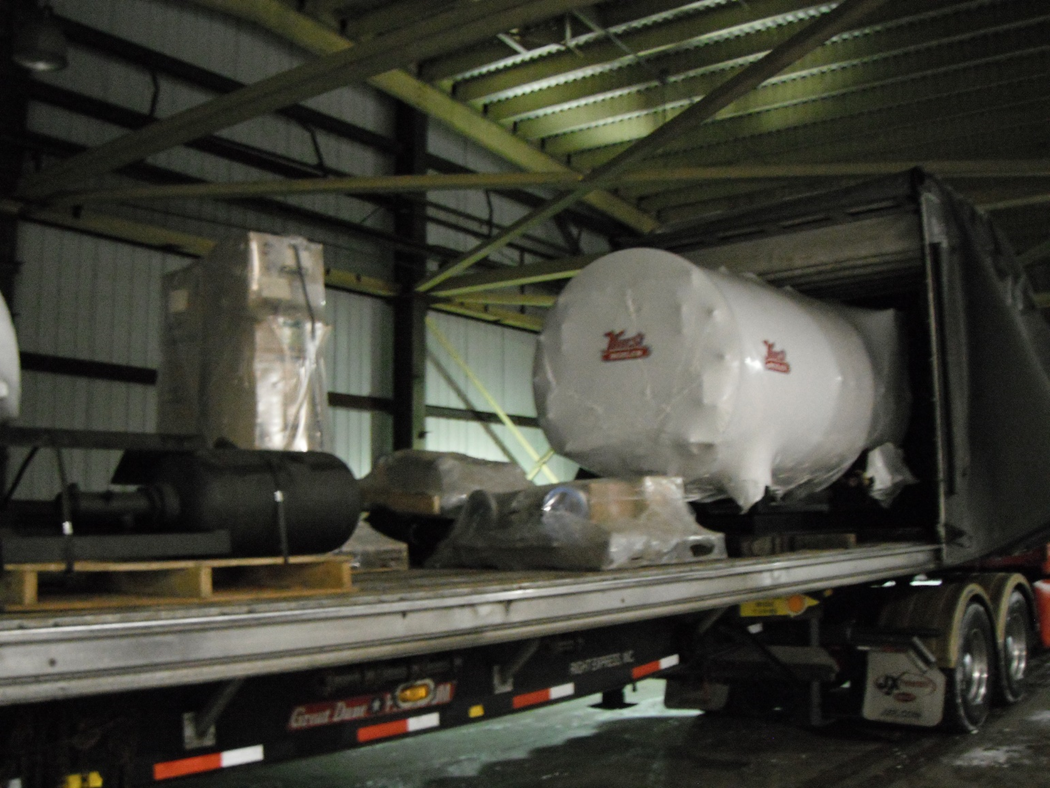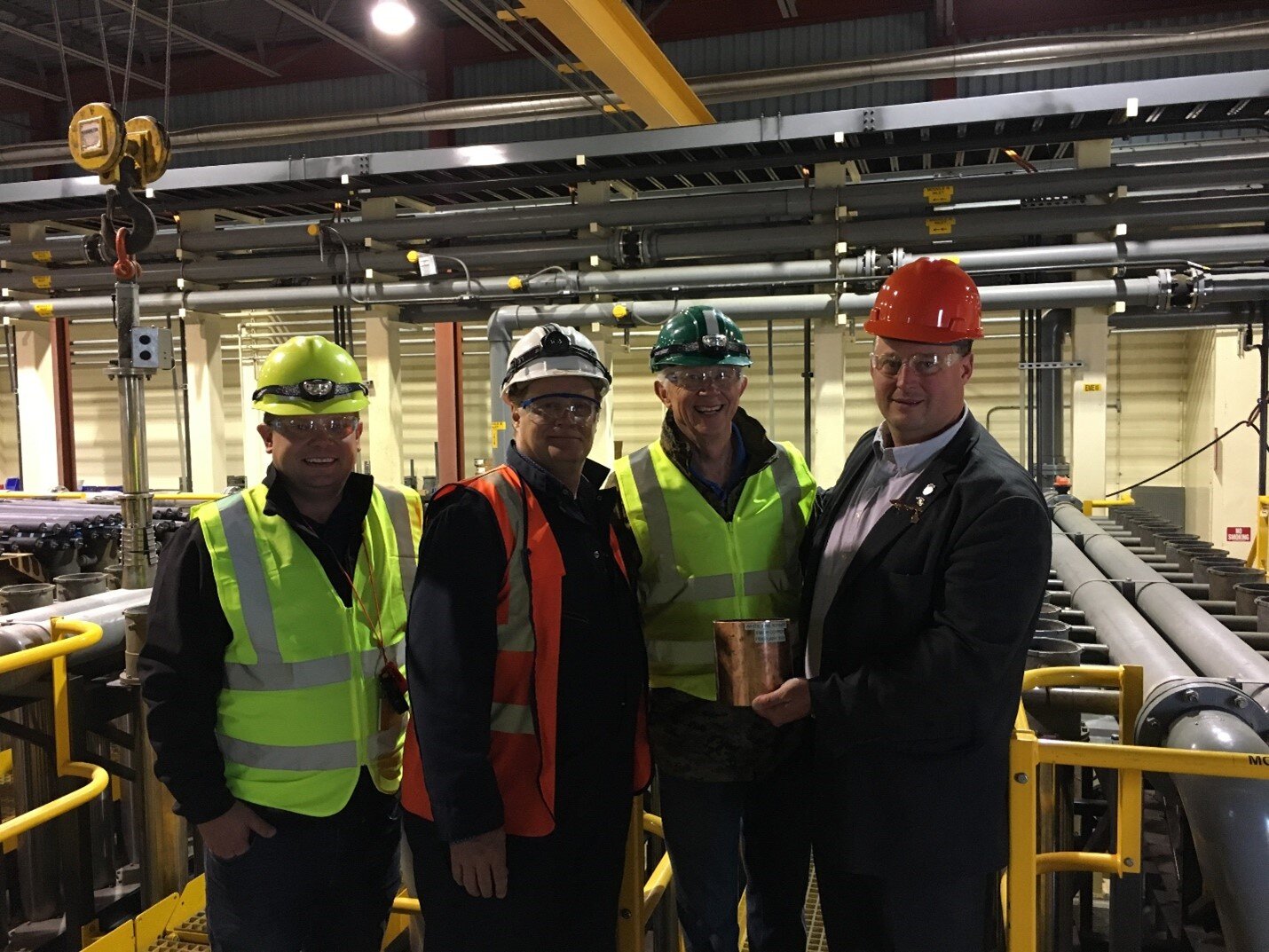New Solutions in Copper Country
The Challenge
Copper has been recycled for thousands of years. Consider that the copper used in the penny in your change jar could have come from a source as old as ancient Egypt. In the U.S., as much copper is produced from recycled sources as newly mined ore. Recycling this valuable metal reduces risk to the environment, including CO2 emissions, harmful air pollutants, and damage to natural ecosystems.
There are several sources of copper-rich waste that have historically been landfilled or dumped in the environment. This includes stamp sands – coarse sand left over from processing ore - a legacy of the copper ore mining industry in the Michigan Upper Peninsula that threatens the long-term health of fish spawning grounds in Lake Superior and impacts the local Native American way of life in the region. For example, there are 23 million tons of stamp sands deposited near the town of Gay, Michigan.
Other sources of marginal copper waste that have negative environmental impacts and would benefit from new recovery solutions includes industrial scrap, such as dust, sweepings and other landfill diverted materials. Collection and processing of these materials is occurring in some areas of the country, but is not yet happening at scale in other parts of the Midwest, including Michigan.
The Solution
PM Power Group has developed a process to recover and repurpose these waste streams into valuable copper cathode, an essential input for the wire and cable industry. The firm operated a two-year pilot project at its White Pine Copper Refinery in the Upper Peninsula to study the economic feasibility of utilizing these feedstocks. They subsequently applied for a Business Process patent and are now in the process of upgrading equipment to increase capacity and scale up copper recycling at the refinery. Some of the output will go towards components for new vehicle manufacturing in Michigan.
In addition to the environmental benefit derived from processing potentially hazardous waste into marketable copper as a substitute for virgin ore, this phase of the project will support over 26 full-time positions in an area facing declining economic opportunity.
The Team
PM Power Group received a $425,000 infrastructure grant from the Michigan Department of Environment, Great Lakes, and Energy (EGLE) in 2019, with a $325,000 match from PM Power Group. Other financial partners include the Michigan Economic Development Corporation (MEDC) Northern Initiatives program, a Michigan Rural Development Grant, Keweenaw Economic Development Alliance, and Superior National Bank and Trust.
The team is working with a U.S. EPA task force that is developing solutions to collect, clean, and dispose of stamp sands. They are also working with Michigan Technological University and Greensands Inc. These organizations have patented technologies, both pre- and post- processing at the White Pine Plant, to utilize materials in the stamp sands to create shingling and other economic applications. PM Power Group is also working with SubTerra to see if the former mine site can be used to hold the remaining sands post processing.
The Results
PM Power Group’s White Pine Copper Refinery is currently in the process of moving from the pilot project to commercial operation. Equipment recently arrived and will be installed over the first part of 2021. During installation, the pilot facility will continue to operate and products will continue to be tested for recycling .
Copper is sold shortly after it passes specifications, and the company will be looking into long term off take agreements to help build stability into the project. New hires will occur shortly after final construction is completed in 2021.
The second phase will consist of adding additional plating cells within its existing permitted capacity, increasing the material output and job creation of the facility.
For more information visit www.pmpowergroup.com
Photos provided by PM Power Group.
Photos and graphics:
Provided by PM Power Group
